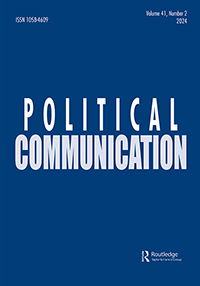Do Partisans Follow Their Leaders on Election Manipulation?
IF 4.6
1区 社会学
Q1 COMMUNICATION
引用次数: 1
Abstract
ABSTRACT Party elites frequently seek to change election rules for their benefit, but these changes do not always align with the democratic principles of the mass public. If party elites are able to influence what the public considers fair, the effectiveness of this public constraint would be limited. This paper tests three possible mechanisms by which this elite influence could function using survey experiments. First, elite cues favoring electoral manipulation could be effective without any appeal to principle. Second, elites could change the public’s perception of whether a given fairness principle applies to a given election rule. Third, elites could directly change which fairness principles people prioritize. I find no evidence that the public is willing to support elites’ explicit attempts at partisan manipulation or that elites are able to directly affect the democratic principles that citizens prioritize. However, elites are able to influence opinion on voting policy issues, regardless of whether the justifying principle they use applies to that policy.党派人士会跟随他们的领导人操纵选举吗?
政党精英经常为了自己的利益而改变选举规则,但这些改变并不总是符合大众的民主原则。如果政党精英能够影响公众对公平的看法,这种公共约束的有效性将受到限制。本文通过调查实验测试了精英影响发挥作用的三种可能机制。首先,精英们支持操纵选举的暗示可能在没有任何原则诉求的情况下有效。其次,精英们可以改变公众对特定公平原则是否适用于特定选举规则的看法。第三,精英可以直接改变人们优先考虑的公平原则。我没有发现任何证据表明公众愿意支持精英操纵党派的明确企图,也没有证据表明精英能够直接影响公民优先考虑的民主原则。然而,精英们能够影响投票政策问题上的意见,不管他们使用的辩护原则是否适用于该政策。
本文章由计算机程序翻译,如有差异,请以英文原文为准。
求助全文
约1分钟内获得全文
求助全文
来源期刊

Political Communication
Multiple-
CiteScore
13.90
自引率
2.70%
发文量
30
期刊介绍:
Political Communication is a quarterly international journal showcasing state-of-the-art, theory-driven empirical research at the nexus of politics and communication. Its broad scope addresses swiftly evolving dynamics and urgent policy considerations globally. The journal embraces diverse research methodologies and analytical perspectives aimed at advancing comprehension of political communication practices, processes, content, effects, and policy implications. Regular symposium issues delve deeply into key thematic areas.
 求助内容:
求助内容: 应助结果提醒方式:
应助结果提醒方式:


